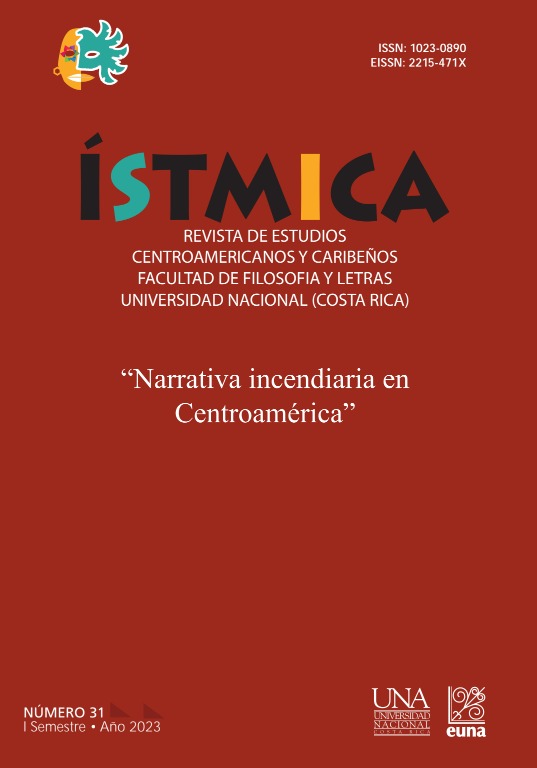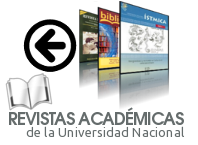The Epistemic Transformation Demanded by the Post-Pandemic period: Reflections from the Faculty of Philosophy and Letters of The National University of Costa Rica
DOI:
https://doi.org/10.15359/istmica.31.9Keywords:
Pandemics, higher education, transdisciplinarity, technology, Axiological EpistemologyAbstract
A calm reflection is presented and in a rather familiar tone from the perspective of axiological epistemology about the teachings that the Zeitgeist
or spirit of times tries to instill in the academic community as well in the whole society as a result of the over two years of the Covid-19 pandemic
suffered by most of humankind. Such teachings not only can but must set the course for the construction and promotion of new and reinvented forms
of common sense. For this aim, the proposal of the epistemic transformation both from the merely informative as well as from the functional components of knowledge to the axiological dimension is shown as attention to an urgent claim of the contemporary human beings urged to articulate their double access to knowledge, the one that is related to their subsistence and the one that allows them to situate themselves in the very depths of existence to integrate everything that converges in them.
References
Bunge, Mario. Epistemología. Curso de actualización. Buenos Aires: Siglo XXI, 2002.
Carlos Cordero Pérez. “Casi 165.000 intentos de ‘hackeo’ y de software maligno detectados en 100 entidades públicas de Costa Rica en esta semana.” https://www.elfinancierocr.com/tecnologia/casi-165000-intentos-de-hackeo-y-de-software/WGOXXWPPIVFPFACDBNI7ZCZ3V4/story/ (Consultado el 24 de abril del 2022).
Carlos Ruiz González. ¿Más eficaces o más eficientes? El Financiero. 11 de setiembre del 2020. https://www.elfinanciero.com.mx/opinion/carlos-ruiz-gonzalez/mas-eficaces-o-mas-eficientes/ (Consultado el 20 de marzo del 2021)
Cobo, Juan Cristóbal. <>. Zer: Revista de Estudios de Comunicación, 14, 27. (2009): 295-318.
Codina, Pedro y Carlos Delgado, <>, Revista Trans-pasando Fronteras, 10, (2016): 11-24.
Corbí, Mariano. La construcción de los proyectos axiológicos colectivos. Principios de epistemología axiológica. Barcelona: Editorial Bubok Publishing, S.L, 2013.
Corbí, Mariano. El gran olvido: La gratuidad de vivir. Principios de epistemología axiológica 6. Barcelona: Editorial Bubok, 2020.
Dussel, E. <>. Revista de Cultura Teológica N. 4 (1993): 69-81.
Hegel, G.W.F. Fenomenología del espíritu. Fondo de Cultura Económica, 2017.
Honneth, Axel. Crítica del agravio moral. Patologías de la sociedad contemporánea. Buenos Aires: Fondo de Cultura Económica, 2009.
Horkheimer, Max. Crítica de la razón instrumental. Madrid: Trotta, 2002.
Horkheimer, Max, T. Adorno, y H. Murena, Dialéctica del iluminismo. Buenos Aires: Ed. Sudamericana, 1969.
Hugo Padilla, <>, La filosofía y la ciencia en nuestros días (1976): 157-170.
Martha Nateras, <>. Espacios públicos (en línea) 12, 24, (2009): 237-240. https://www.redalyc.org/pdf/676/67611167016.pdf (Consultado el 10 de mayo del 2021).
Nicholas LePan. Visualizing the History of Pandemics. Visual capitalist. Published on March 14, 2020. https://www.visualcapitalist.com/history-of-pandemics-deadliest/
Nicolescu, B. La transdisciplinariedad. Manifiesto. Mónaco: Editions du Rocher, 2006.
Robles, José Amando. Repensar la religión. De la creencia al conocimiento. Heredia, Costa Rica: EUNA, 2011.
Robles, Amando, Espiritualidad y conocimiento. Clase magistral presentada en Universitas Nueva Generación, Chile, el 17 de abril del 2013.
https://www.youtube.com/watch?v=zGGo0O74ze8 Consultado el 25 de marzo del 2021.
Rosales, Amán. Introducción a la filosofía de la tecnología. Cartago: Editorial del Instituto Tecnológico de Costa Rica, 2006.
Santos. Boaventura de Sousa. Construyendo las epistemologías del Sur: Para un pensamiento alternativo de alternativas (Vol. 2) CLACSO, 2018.
Savona, M. <<¿La “nueva normalidad” como “nueva esencialidad”? COVID-19, transformaciones digitales y estructuras laborales>>. Revista CEPAL-Edición Especial, (2020): 209-224.
Solórzano, Gabriel. <>, Foro de Educación, (2008): 347-367. https://www.redalyc.org/pdf/4475/447544585018.pdf
Published
How to Cite
Issue
Section
License
Las personas autoras que publiquen en esta revista permiten cesión gratuita, exclusiva, de ámbito mundial de sus derechos de autoría a la Universidad Nacional (Costa Rica), conservando únicamente sus derechos morales sobre la obra publicada.
Los artículos pueden ser citados y copiados, citando a la persona autora y la fuente. Todos los artículos publicados en la Revista Ístmica están protegidos bajo una Licencia Creative Commons Atribución-NoComercial-CompartirIgual 4.0 Internacional








